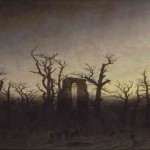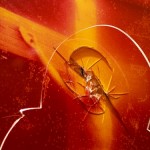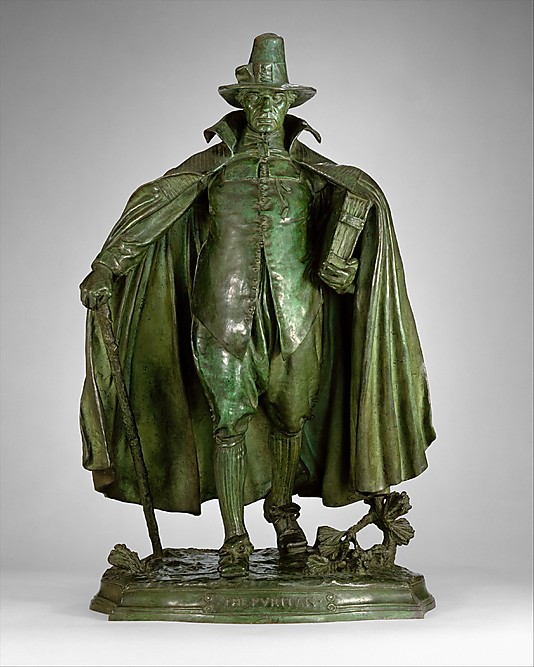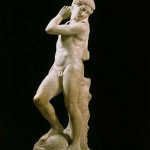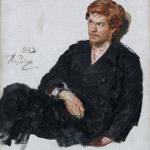In 1857 an exhausted and depressed Herman Melville travelled to Jerusalem in an effort to recover his Christian faith. He returned bitterly disappointed with what he apparently didn’t find. Unfortunately, Melville’s life-long struggle with faith is not the exception in the history of modern art and literature. This history is characterized by loss, brokenness, and failure, and faith is often one of the consequences. Edvard Munch said that “art comes from joy and pain,” and then he added, “but mostly from pain.” Melville’s description of his recently completed novel, Moby-Dick, also describes most of the great artistic and literary achievements in the nineteenth and early twentieth centuries.
“It is of the horrible texture of a fabric that should be woven of ships’ cables & hausers. A Polar wind blows through it, & birds of prey hover over it.”
Published in 1851, Moby-Dick was ridiculed by critics and reviewers, in no small measure because his Victorian readers took offense at his impiety and latent atheism. But in reality, this literary masterpiece is one of the most aggressively honest explorations of Christianity that emerged from the nineteenth century. In his famous chapter 42, “The Whiteness of the Whale,” Melville’s Ishmael implies that God might even be responsible for evil:
Though in many of its aspects this visible world seems formed in love, the invisible spheres were formed in fright.
Melville was haunted by God’s inscrutable sovereignty, a power and majesty that terrified him because he was hidden. (In this way, Melville’s response is not unlike Luther’s well-documented hatred that he harbored at the righteousness of God before he “broke through.”) Perhaps more than any American writer, Melville felt deep in his bones the terror of a God who kills and makes alive, a God of wrath, eternal decrees, and unapproachable holiness. Melville’s God is, in the words of theologian Steven Paulson in his book Lutheran Theology, an unpreached God. Life without a preacher, Paulson writes,
is life with a silent God whose will is immutable and who stands on high mountains, like Zeus on Olympus, hurling thunderbolts called fate, judgment, and death…”
Or, in Melville’s world, this silent God is a colossal white whale that terrorizes from the unseen depths of the seas, striking all who dare pursue him. (Ahab, the lunatic captain, bears the visible marks, not unlike Jacob, of having wrestled with the Divine.) For Paulson, we must encounter and then flee from this terrifying God of seeming arbitrary wrath and judgment in order to find the God who saves. And this is done only through a preacher (Rom. 10: 14) who proclaims in Christ a God who is terrifying and arbitrarily gracious, who is not against us but for us. The preacher reveals that grace not judgment is God’s last word. But in Moby-Dick, God remains forever unpreached, and therefore, arbitrary, monstrous, and terrifying–retreating further and further away until it strikes, and completely destroys (judges) the Pequod. And yet.
And yet there is a survivor. Amidst the polar wind and birds of prey of Moby-Dick, grace operates throughout the novel. But it is most obviously and inexplicably present in the Epilogue. How does Ishmael survive the sinking of the Pequod? How does he, the one who is named after a Biblical castaway, a wanderer in the line of Cain, survive? The biblical Ishmael is the one who is rejected by his father Abraham in favor of Isaac, the child of promise. However, like his biblical namesake, who is nevertheless cared for and blessed by God, Ishmael is blessed by Melville, his creator, who, by putting the words of Job in his mouth (“And I only am escaped alone to tell thee.”)
The strangeness of Ishmael’s survival was not lost on Melville’s reviewers. Many read it as a gratuitous addition. And let’s face it, it is. Melville’s Ishmael survives only as a gratuitous decision by his creator in the form of an inexplicable, un-warranted Epilogue.
An act of one-way love.



